6. Bram Stoker’s Dracula (1974)
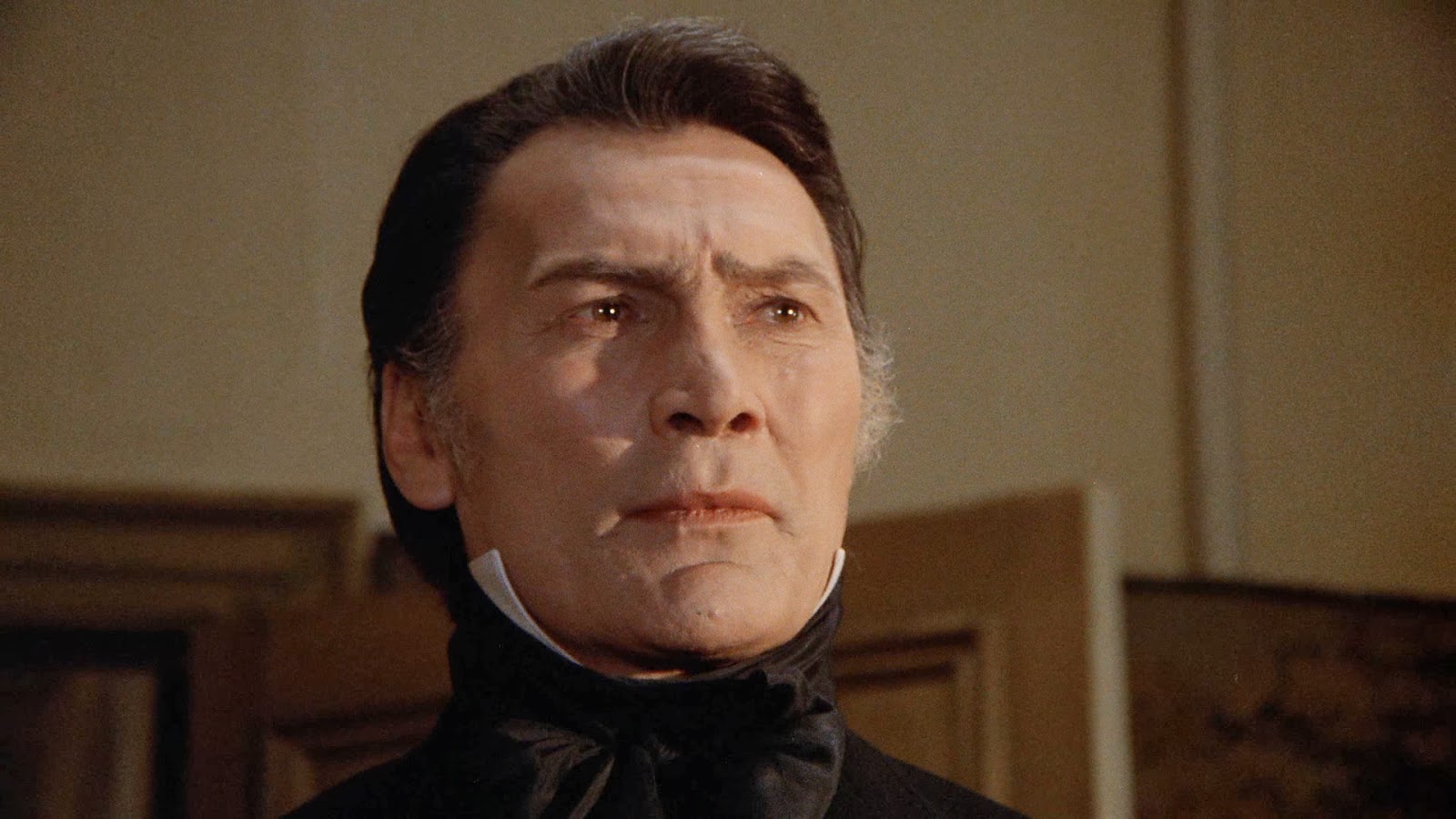
It’s true, Matheson spent a lot of time with vampires. His short story “Dress Of White Silk”, while not explicitly about vampires, might be the best story ever told about those ubiquitous creatures of the night, and the humorous “The Funeral” stands high in the annals of vampire fiction, as well. Maybe it was only natural that he eventually adapted the granddaddy of all vampire stories for the BBC. But if you’re as sick of this hearing the Stoker version as I am, fear not: Matheson’s still behind the typewriter, so what you’re gonna get is anything but the same old, same old.
Really, you already know the story: Jonathan Harker visits Count Dracula in Transylvania to sell the man some property, only for the “man” to turn out to be a vampire who proceeds to turn many of Jonathan’s friends into ghoulish devils of the night. Feeling hopeless, they enlist the help of Dr Van Helsing, who teaches them how to fight off the vampires and rid the world of Dracula’s scourge.
What Matheson does is hone in that story’s supernumerary indulgences by fitting it into a tight 90 minutes. In such a short time span, its attack is really brought out, the idea that this is an assault on a small group of British aristocrats with no patience for talk of the supernatural. They’re encountering something absolutely being the scope of their understanding, forced to desecrate the bodies of their loved ones in order stop evil’s invasion. That he manages to do so while throwing in some new scares is nothing but commendable.
Is it the best Dracula? No — nothing has yet beat the Todd Browning version. But this is a very British, Hammer-inspired version that bears the mark of a writer best suited to the cross-section of the urban and the fantastic.
7. Trilogy Of Terror (1975)
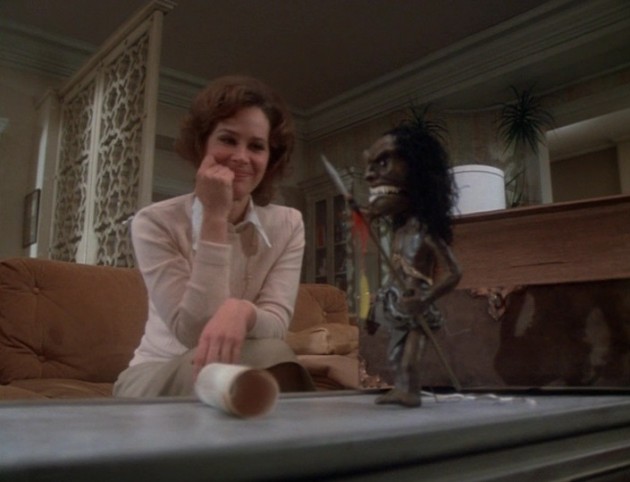
Matheson’s first forays into writing were in the short story form. While still a young man, he penned the classic, “Born Of Man And Woman”, which is still considered among the best horror stories ever written. It was only natural that at some point these writings would find their way into an anthology film, and Trilogy Of Terror picks the best of the bunch to illustrate the man’s skill with fear. Don’t let the hokey title fool you: this is a thrilling movie with twists and turns that’ll make your hair stand on end.
As the title suggests, there are three stories in the film: “Julie”, about a sadistic student blackmailing his teacher into dating him; “Millicent and Therese”, about a rivalry between two sisters and voodoo curse; and “Amelia”, about one woman’s fight with a possessed doll in her apartment. Each one acts as a cinematic gut-punch, taking you through all manner of horrors — some of which you expect, many of which you don’t. “Julie”, in particular, has a reversal you will not see coming.
And if this movie turns out to be your kinda thing, then might I recommend you pick up Penguin’s collection The Best Of Richard Matheson and, if you can find it, his collection Shock. Some of his work is still quite rare, so if you see it, grab it. You’ll be shocked and amazed at the depths of one man’s imagination.
8. Jaws 3-D (1983)
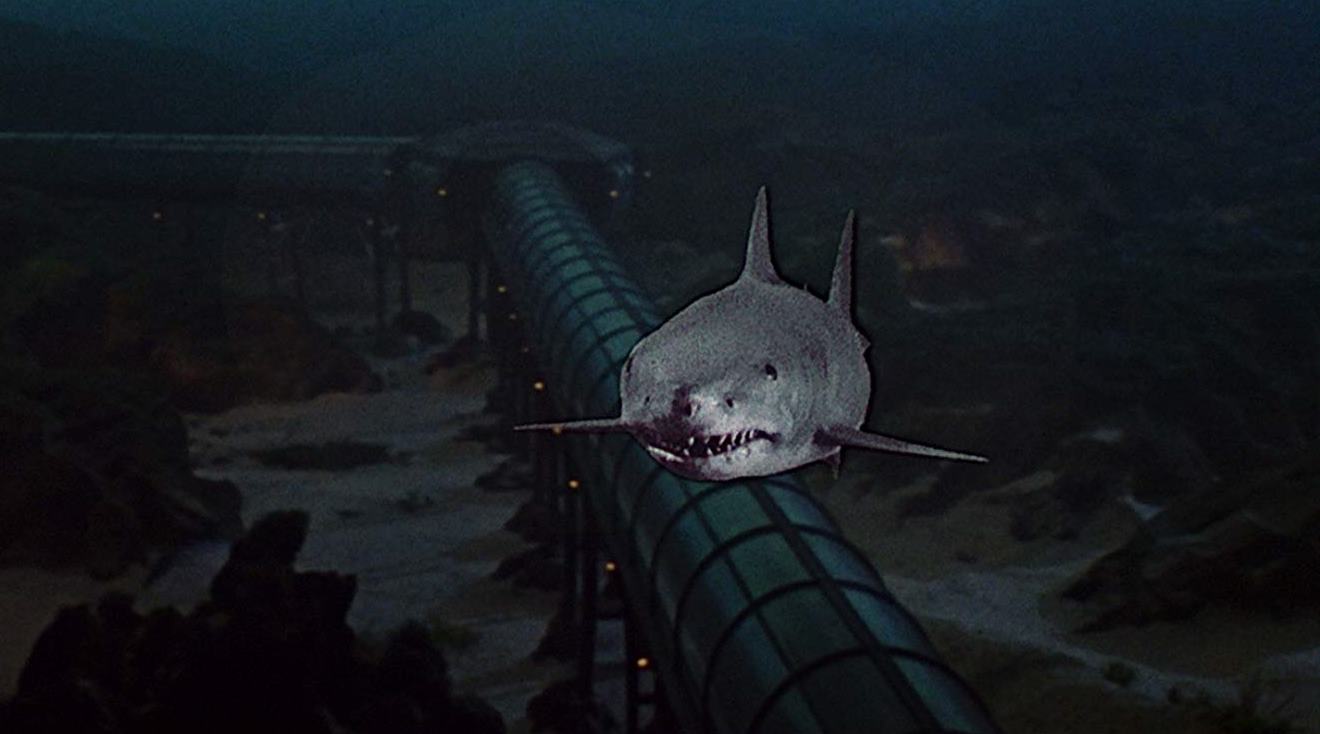
The Roman poet Horace wrote one of the greatest and most important works on creating literature, the poem “Ars Poetica”. In it, he says, “quandoque bonus dormitat Homerus”, which is often translated as “sometimes even good Homer sleeps”. It means, basically, that even the best writers wind up creating continuity errors, or writing wooden dialogue, or forgetting to tie up plot lines. Well, a more modern version of Horace’s aphorism might be, “Sometimes even Richard Matheson writes Jaws 3-D”.
It’s true, there are some painfully terrible things about Jaws 3-D, particularly in the effects department. But to my mind, it remains a fascinating reminder of the limits to greatness, and the process of diminishing returns. The whole movie takes place at Seaworld, for one, and features two sharks on the loose, one of which is saved for the second act curtain. (“What a twist!”) Its entire plot is unbelievable.
But crucially, it’s really not a boring movie. There’s tonnes of blood flying up at the screen, a tense moment when a group of tourists find themselves locked in a pod that’s filling up with water — and, of course, Dennis Quaid, who somehow still manages to be charismatic.
And really, that just makes me admire Matheson more. He was given a ridiculous assignment, one that was never gonna turn out well, and he was able to make enough of it memorable that I still think about it from time to time. It shows that he was still every bit the working writer that he was whether he was with Rod Serling or Roger Corman.
Plus — it’s really not that bad. Give it a shot, see what you think.
9. The Devil Rides Out (1968)
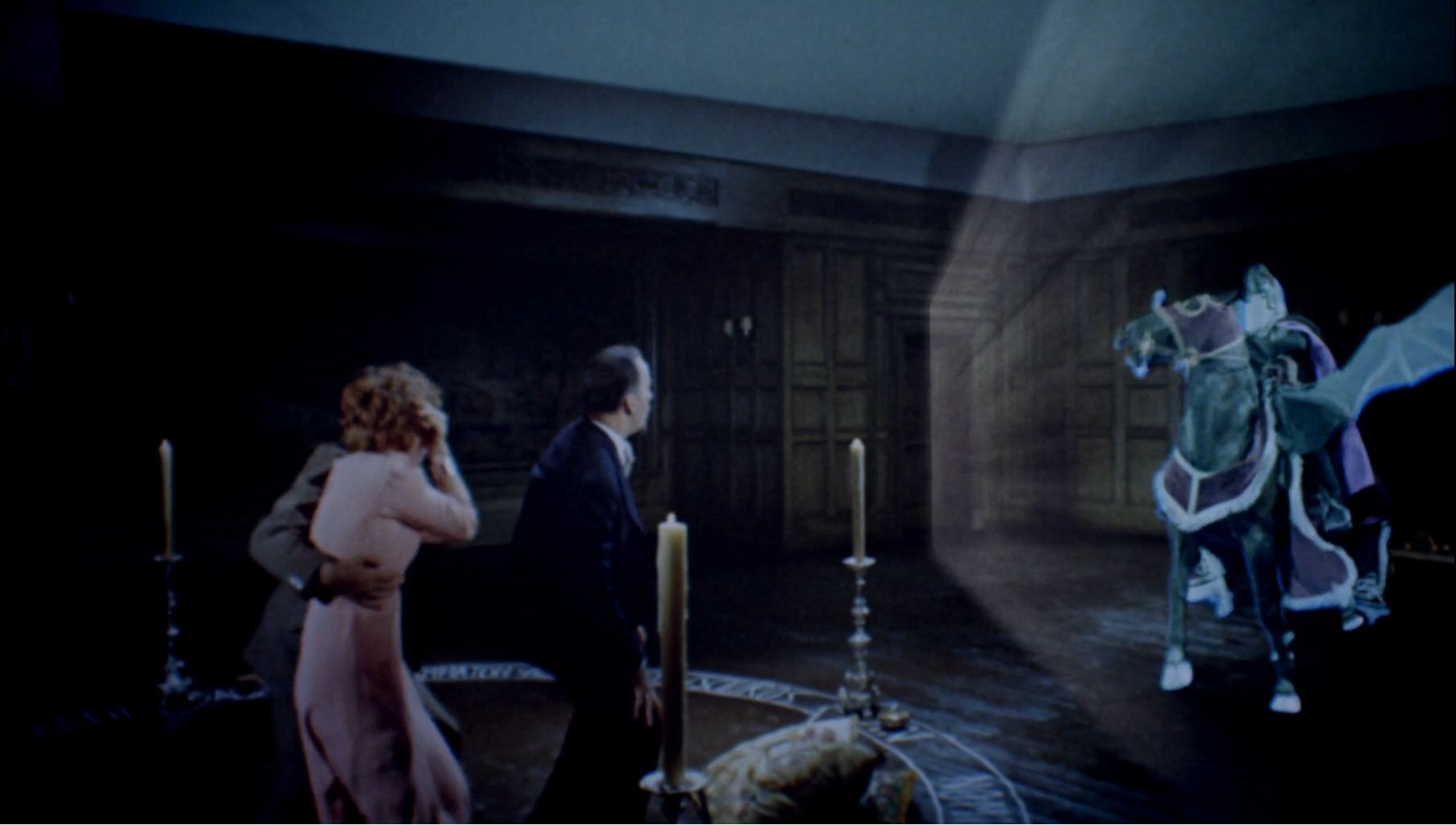
Matheson was raised a Christian Scientist before becoming something of a New Age man. He believed in an afterlife, although in a typically bizarre way — he claimed to have learned through his research into the occult that the afterlife was made up of thoughtforms, such that one created one’s own afterlife after the vacating of consciousness from the body. Once, he said that he regretted not making a discovery in metaphysics great enough that it entered the philosophical conversation. In other words, he was a lifelong man of spirituality, although rarely did he get to explore the subject. His book What Dreams May Come is one of the more notable places in which he tried to expound upon his philosophy, but the lack of drama in that story makes it a difficult read for all but the most diehard fans.
The one place he was able to master the combination of spirituality and entertainment was in the Hammer film The Devil Rides Out, although as we’ll see, it’s in an arrestingly strange way.
Devil follows Christopher Lee, for once cast as the hero, as an expert in the occult trying to save his friend from a Satanic cult, whose leader is a magician powerful enough to summon the Angel Of Death. It was directed by Terence Fisher, the veteran Hammer director who made Curse Of Frankenstein, Dracula and The Earth Dies Screaming. It’s genuinely spooky — the appearance of the Devil at the film’s midpoint is chilling in a way you wouldn’t expect from even the great Hammer. And Lee is always great as a man possessed by fidelity to the safety of his friend’s soul.
Thematically, however, the movie is at its most interesting when it plays occultism against Christianity. The movie is firmly on the side of the Christians — it has no illusions about the dangers present in magick, and spends much of its runtime making just such a case. Having done some reading on the occult myself, I can tell you that many of the rituals, such as the banishing ritual used by Lee, are accurate. Matheson, being interested in these matters, obviously encountered them either in research or prior to the writing of the script.
The religious message, then, is interesting for whether or not Matheson really believed in it. Is this another case of a working writer satisfying the demands of his assignment? Or is it an example of Matheson doubting the veracity of his research? Either way, that he’s able to throw such concerns into a movie as tense and exciting as this is a testament to the sheer talent this man possessed. Devil starts going in the first minute and never lets up, not even for a second. Truly, this is the greatest of all Hammer films.
10. The Comedy Of Terrors (1963)
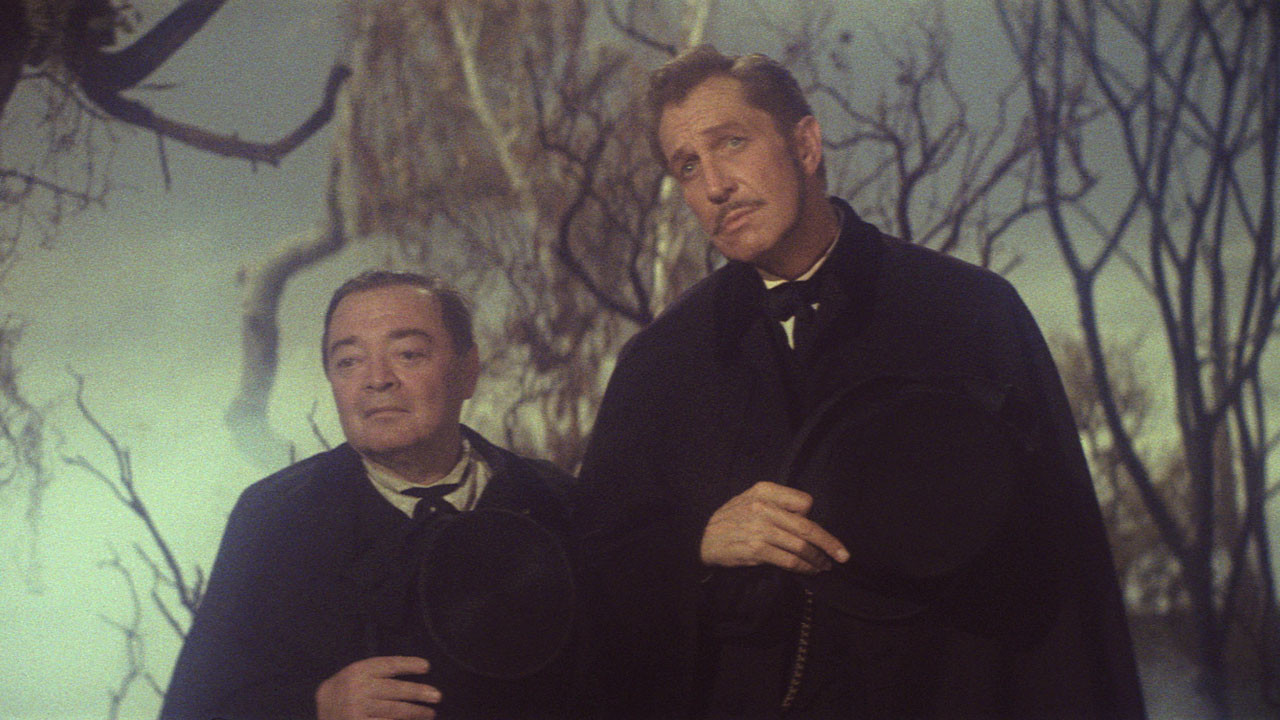
Somehow I still managed to save the best for last. How many more superlatives can one man use? The Night Stalker is the greatest television movie, The Devil Rides Out is the best Hammer movie — and still The Comedy Of Terrors is his best work? How’s that possible?
Matheson was not necessarily known for being humorous, either. Hell House is scary as shit. His Twilight Zone scripts are unnerving. The Raven, his previous comedic script, was definitely funny, but not riotous. So what’s the difference?
Firstly, the premise is maybe the best he ever came up with: Vincent Price plays a funeral director who, frustrated with his lack of business, opts to start killing people. He enlists the help of a criminal, Peter Lorre, who some of you might know from Fritz Lang’s M or Casablanca.
Which brings me to the second point. In a way, it’s surprising that Lorre could be such a good comedian, especially after playing a slayer of children in M. But the way he and Price play off each other is very much the secret to the film’s success. These two actors — previously seen not only in The Raven but also Tales Of Terror — were every bit the equal of Laurel and Hardy and Abbott Costello.
And still, there’s the quality of the jokes. Nobody will be prepared for the hilarity that’s in store once Price and Lorre decide to kill their landlord. The number of resurrections and the rote politeness that’s exchanged during the attempted murder is among some of the funniest bits I’ve ever seen.
Which means not only did he master the short story, novel, teleplay and screenplay, but he also mastered both horror and comedy. He was infuriatingly brilliant. Time to start watching.